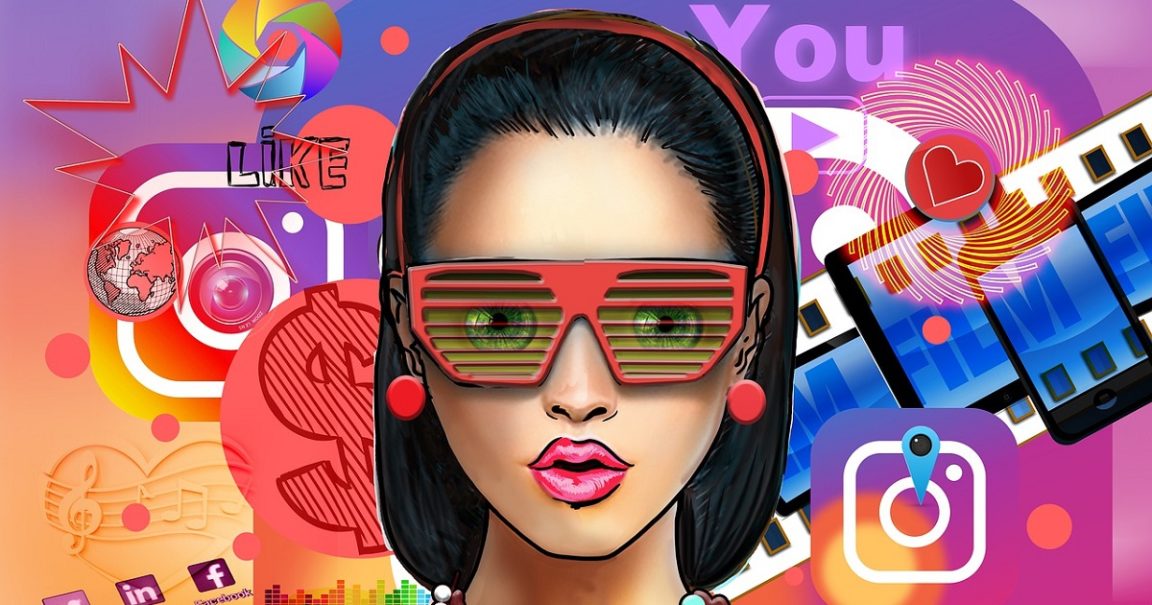If you’re handling a website, blog, or you yourself are a social media influencer, chances are you will be known or are already known by many. In such a case, because of your prevalent exposure on online platforms considering the number of followers and readers you generate, companies especially in the retail industry will flock to your email with inquiries; collaborations, partnerships, and sponsorships are seemingly so normal that brands come for you to promote what they sell.
Sponsorship for influencers and sites has been widely predominant in the society today, in a way that online platforms are used mostly by everyone; nevertheless, sponsorship aims to benefit the brand by sponsoring websites and social media influencers to promote their products, and thus, higher chances of brand exposure and sales for the brand itself. Yet, sponsorship does not come when you just have a lot of followers; it also entails that your platform is a reputable one, creating customer loyalty and pooling them into buying a product they didn’t know they needed. Thus, sponsored contents usually generate income for the company as it can broaden its potential market.
However, even though we believe what an influencer or a website says, there’s always a chance for the content to be misleading, which also results in disappointment from clients, because what they thought works actually does not. Because of this ethereal deception, the Australian Influencer Marketing Council (AIMCO), together with the Australian Association of National Advertisers (AANA), the Australian Consumer Law (ACL), and the Australian Marketing Institute (AMI) has devised their individual code of ethics and practices that is aimed to better content authenticity, and because sponsorships aren’t that really “organic”.
Yet, how are paid sponsorships regarded and controlled?
Sponsored Content Legal Compliance
The Australian Marketing Institute disseminates to all online marketers, either for websites or social media, that they should not engage in misleading and false information, whether written, spoken, or implied nor conceal any relevant fact. The Code of Conduct also states that influencers and websites must maintain honesty and accuracy in all promotions and all aspects of marketing. Yet, because deception is always inevitable for these entities to gain market trust and make more sales, it is with high regard that they disclose to their viewers that the content made is sponsored, and thus that’s what makes them commend a particular service or product, and not innately because it works.
Consequently, AiMCO’s Code of Ethics outlines the guidelines in advertising and marketing communications. This is in line with AANA’s Code of Ethics as well, specifying that influencers and websites should disclose that it is advertising content when there is a calculated promotion of a product on content and that a specific brand owner has control over what contents go and do not. This is to also prevent complaints to Ad Standards and clients, where transparency is shown so clients will be able to know to what extent a content must be trusted.
Sponsored Content & Australian Consumer Law
The Australian Consumer Law (ACL), has set standards when it comes to Fair Trading. They allow consumers to enjoy products and services that are marketed with all honesty and also with transparency among their promoters. Trading Acts and Laws have been set out in different states in Australia entailing different sanctions for influencers and websites who are engaged in sponsorship ads without disclosing it to their clients and followers.
Moreover, the ACL sets misleading and deceptive contents as per section 18 of the Competition and Consumer Act 2010. This affects the representations websites and influencers do, and they must be able to comply with disclosing sponsorships to aggravate transparency to followers with sponsored content.
What must influencers do?
Influencers have become successful in pooling different types of markets in promoting and selling a product. As influencers, the audience is more drawn to them because they somehow do organic contents, which then encourages the audience to make purchases. However, when they promote products that are sponsored but do not disclose that it is paid content, this could fall under misleading or deceptive conduct under the AANA Code of Ethics. Thus, it is necessary to do the following to avoid penalties:
- Include relevant hashtags like #sponsored, #paidpartnership, or/and #ad.
- For influencers who use Instagram as their main platform, they must also use the “Paid Promotion” tag in a sponsored post.
- Be transparent and refer to the partnership in the caption.
This would then benefit the clients and make them aware that the promotion is sponsored, avoiding deception that they always make the “organic” content when in reality they are not.
What must websites do?
Websites are also included in disclosing sponsorships from brands. Regardless of blog posts, videos, and photo content, it is deemed necessary to also disclose that the content is a paid partnership. Failing to do so would mean sanctions and penalties, and penalties can be serious and hefty as well.
Websites must also do hashtags, and create bylines that show their paid content, yet it should also be evident and not in any way diminishing that audiences may not be able to see it.
When is sponsored content disclosure required?
Basically, sponsored content is necessarily done when there is a collaboration between your website and a brand. Yet, it should be strictly followed when there is a contracted agreement, either verbal, recording, emails, letters, or digital and other documents. More so, any transactions with payments are always regarded as a sponsorship, as there is a two-way bargain between your content and the brand you are promoting; gifts, vouchers, and free products are considered payments as well.
Affiliate marketing engagements are also subject to the sponsored disclosure agreement when there’s a product they are promoting with payments too.
A reputable influencer and website can gain customer influence. Typically, they create contents that are “organic” which brings more authenticity to the content they post, and hence, customer belief. But the reality is websites and influencers can somehow mislead the masses; because of the loyalty from their followers, the latter often believe that a product works because it is recommended by their idols, and much more it has been featured on a reputable website.
This is why the Code of Ethics and a series of practices for influencers and websites have been made, not only in Australia but around the world. Because deception is rampant, influencers and websites must always do their part to be able to foster transparency and trust from their audience.





